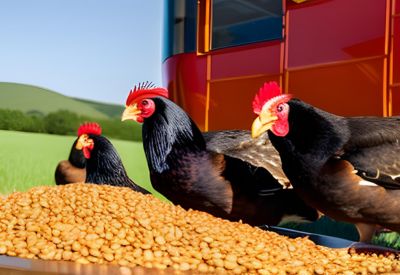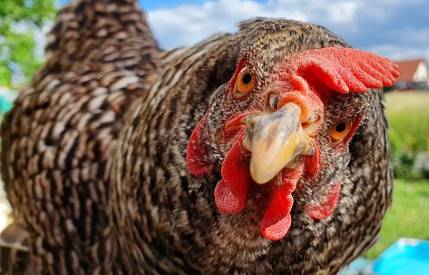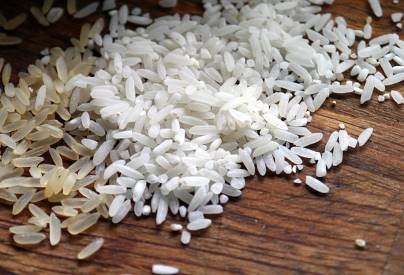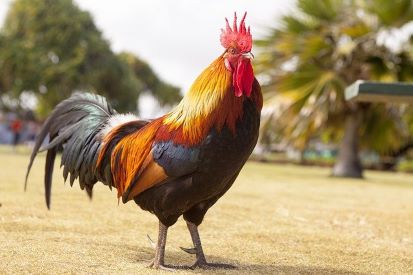Recently, I found myself wondering if chickens can eat lentils. Lentils are a staple in my own diet, providing a nutritious and delicious source of plant-based protein. So, I couldn’t help but think – could these tiny legumes be just as beneficial for my flock?
After doing some research, I’ve come to find that lentils can indeed be a great addition to your chickens’ diet when prepared and served properly. In this article, we’ll dive into the nitty-gritty of feeding lentils to chickens – from their nutritional profile and benefits to cooking methods and potential concerns. Whether you’re a seasoned chicken keeper, homesteader, or farmer, this article aims to provide you with valuable information on incorporating lentils into your flock’s diet.
So, stick around and join me on this journey as we explore the world of lentils and chickens. Let’s discover how we can make our feathery friends cluck with delight and ensure their optimal health and happiness!

Nutritional Profile of Lentils
First, let’s talk about what makes lentils such a popular ingredient in human diets. Lentils are packed with essential nutrients like protein, fiber, iron, and folate. They also contain a good amount of vitamins and minerals that contribute to overall health.
Compared to other common chicken feed ingredients like corn, wheat, or soybeans, lentils stand out due to their high protein content. They can serve as an excellent plant-based protein source for your chickens. Plus, lentils are relatively low in fat, which means you won’t have to worry about your chickens gaining too much weight from them.
[ChickenAffiliate]
Raw vs. Cooked Lentils: Which is Safer for Chickens?
Now that we know lentils are nutritious, let’s discuss the safest way to serve them to our chickens. Raw lentils contain a natural compound called lectin, which can interfere with nutrient absorption and cause digestive issues in chickens. To avoid this problem, it’s best to cook the lentils before feeding them to your flock.
Cooking lentils is quite simple! Just rinse them thoroughly, place them in a pot with water (use a 1:3 lentil to water ratio), and let them simmer for 20-30 minutes until they’re soft. Make sure to drain any excess water before serving them to your chickens.
How to Incorporate Lentils into Your Chickens’ Diet

Now that you know how to prepare lentils, let’s talk about incorporating them into your chickens’ diet. It’s important to remember that lentils should not replace your chickens’ regular feed, but rather supplement it.
As a general guideline, lentils should make up no more than 10% of your chickens’ diet. You can mix the cooked lentils with their regular feed, or serve them as a separate treat a few times a week.
It’s also essential to ensure your chickens have access to a diverse range of nutrients. In addition to lentils, consider incorporating other protein sources like mealworms, black soldier fly larvae, and other legumes.
The Benefits of Feeding Lentils to Chickens

Feeding lentils to your chickens can have several benefits for both their health and overall well-being. Here are five key advantages of incorporating lentils into your flock’s diet.
High Protein Content
Lentils are a fantastic source of plant-based protein, which is essential for your chickens’ growth, muscle development, and egg production. Providing your flock with a diverse range of protein sources, including lentils, can help ensure they receive all the necessary amino acids to thrive.
Rich in Essential Nutrients
Apart from protein, lentils are packed with essential nutrients like fiber, iron, and folate. These nutrients support various bodily functions, such as digestion, oxygen transport, and cell growth. By adding lentils to your chickens’ diet, you’re helping to support their overall health and well-being.
Low in Fat
Lentils are relatively low in fat compared to other protein sources, making them a great choice for maintaining a healthy weight in your flock. Chickens that maintain a healthy weight are less prone to health issues, such as fatty liver disease, and have better egg production.
Economical and Sustainable
Growing lentils can be an economical and sustainable way to supplement your chickens’ diet. They’re relatively easy to cultivate, require less water than other legumes, and can improve soil health through nitrogen fixation. By growing your own lentils, you’ll not only save money on chicken feed but also contribute to a more sustainable food system.
Promotes Foraging Behavior
Mixing cooked lentils with your chickens’ regular feed can encourage their natural foraging behavior, providing them with both physical and mental stimulation. Foraging helps prevent boredom, which can lead to destructive behaviors like feather picking or aggression. By incorporating lentils into their diet, you’re helping to keep your flock engaged and happy.
Incorporating lentils into your chickens’ diet can provide numerous benefits that support their health, well-being, and overall happiness. Just remember to cook them properly and serve them in moderation to ensure you’re making the most of these advantages.
Potential Concerns and Side Effects of Feeding Lentils to Chickens
As with any new food, there are potential concerns and side effects to consider. While most chickens can enjoy lentils without any issues, some may have an intolerance or an allergy to them. Keep an eye on your chickens when you first introduce lentils and look for signs of digestive distress, like diarrhea or lethargy. If you notice any adverse effects, discontinue feeding lentils and consult your veterinarian.
Overfeeding lentils can also lead to health problems. Too much protein can strain your chickens’ kidneys and cause excessive weight gain. Stick to the recommended serving size and frequency to avoid these issues.
Finally, if you have any concerns or questions about feeding lentils to your chickens, it’s always best to consult with a veterinarian or an experienced chicken keeper. They can provide guidance based on your flock’s specific needs and help you make informed decisions about their diet.
What Other Foods Can Chickens Eat Apart from Lentils?

While lentils make a fantastic addition to your chickens’ diet, it’s essential to provide them with a diverse range of foods for optimal health. In this section, we’ll explore five other nutritious options you can consider incorporating into your flock’s meals – beans, rice, oats, quinoa, and chickpeas. Each of these foods offers unique benefits to help keep your chickens healthy and happy.
Beans
Beans are another excellent source of plant-based protein for your chickens. Like lentils, they’re packed with essential nutrients such as fiber, vitamins, and minerals.
However, it’s crucial to cook beans before feeding them to your chickens, as raw beans contain a compound called lectin that can be harmful. Boil the beans for at least 30 minutes to neutralize the lectin and make them safe for your flock to consume.
Read More: Can Chickens Eat Beans? A Guide To Feeding Chickens Legumes
Rice
Rice is a great source of carbohydrates, which provide energy to keep your chickens active and healthy. Both white and brown rice can be fed to your chickens, but brown rice has the added benefit of being higher in fiber and nutrients.
Be sure to cook the rice and let it cool before offering it to your flock. Overfeeding rice can lead to obesity, so make sure to mix it with other grains and serve it in moderation.
Read More: Can Chickens Eat Rice? The Truth About This Common Grain
Oats
Oats are a fantastic addition to your chickens’ diet due to their high nutrient content, including fiber, vitamins, and minerals. They’re also a good source of protein, which is essential for your chickens’ growth and egg production.
You can feed your chickens rolled or whole oats, but avoid instant oats, as they may contain added sugars or preservatives. Make sure to mix the oats with other grains and feed to ensure a balanced diet.
Read More: Can Chickens Eat Oats? A Guide To Feeding Oats To Your Flock
Quinoa
Quinoa is a nutrient-dense pseudo-grain that boasts high levels of protein, fiber, and various essential minerals. It’s also a complete protein, meaning it contains all nine essential amino acids your chickens need.
To prepare quinoa for your chickens, rinse it thoroughly to remove any bitter saponins, then cook it according to package instructions. As with other grains, serve quinoa in moderation to maintain a balanced diet.
Read More: Can Chickens Eat Quinoa? The Superfood Boost Your Chickens Need
Chickpeas
Chickpeas, also known as garbanzo beans, are another nutritious legume option for your chickens. They’re rich in protein, fiber, and essential nutrients like iron and folate.
However, like beans and lentils, it’s important to cook chickpeas before feeding them to your flock to ensure they’re safe and easily digestible. Boil them for at least 30 minutes, then drain and cool before serving.
Read More: Can Chickens Eat Chickpeas? Benefits & Tips For A Healthy Flock
Incorporating these five foods into your chickens’ diet can provide them with a diverse range of nutrients, ensuring they stay healthy and content. Remember always to serve these items cooked and in moderation, and consult with a veterinarian or experienced chicken keeper for guidance on your flock’s specific dietary needs.
Alternative Protein Sources for Chickens
Although lentils are a great source of protein, it’s important to diversify your chickens’ diet with other protein sources as well. Let’s take a look at some alternatives:
- Other legumes: Chickpeas, peas, and beans are all great plant-based protein sources. Just remember to cook them properly to neutralize any harmful compounds.
- Insects: Mealworms, black soldier fly larvae, and crickets are all excellent sources of protein and are well-loved by chickens. You can purchase these insects from a reputable supplier or even raise them yourself.
- Animal-based protein sources: Dairy products like yogurt and cottage cheese can be fed to chickens in moderation, providing them with protein and calcium. Scrambled eggs are another protein-rich option – just make sure they’re cooked thoroughly to prevent any risk of disease transmission.
- Commercial feed: Many commercial chicken feeds are specifically formulated to provide a balanced diet with an adequate amount of protein. Ensure you choose a high-quality feed that meets your flock’s nutritional requirements.
Frequently Asked Questions about Feeding Lentils to Chickens

To round up our discussion about feeding lentils to chickens, let’s address some frequently asked questions. This additional information should help clarify any lingering doubts or concerns you might have.
Can I feed my chickens sprouted lentils?
Yes, you can feed your chickens sprouted lentils! Sprouting lentils reduces the lectin content, making them safe for consumption. Additionally, sprouted lentils are more digestible and have higher levels of nutrients compared to their unsprouted counterparts. Just ensure the sprouts are fresh, clean, and mold-free before offering them to your flock.
Are lentils suitable for all chicken breeds?
Generally, lentils are suitable for all chicken breeds. However, each chicken is unique, and it’s essential to monitor their individual reactions to lentils. If you notice any adverse effects or your chickens don’t seem to enjoy them, it might be best to choose alternative protein sources.
Can I feed lentils to chicks?
While lentils are an excellent source of protein, it’s essential to provide chicks with a balanced diet specifically formulated for their age and growth stage. Commercial chick starter feeds are designed to meet their nutritional requirements.
You may introduce lentils to their diet once they transition to adult feed, but always consult with a veterinarian or experienced chicken keeper before making changes to your chicks’ diet.
How often should I feed lentils to my chickens?
Lentils should be fed as a supplement or treat, making up no more than 10% of your chickens’ diet. You can offer cooked lentils a few times a week, mixed with their regular feed or served separately.
Can chickens eat lentils – final thoughts
So, can chickens eat lentils? The answer is a resounding yes! Lentils can be a nutritious and protein-rich addition to your chickens’ diet when prepared and served correctly. Just remember to cook them, limit their intake to no more than 10% of the diet, and keep an eye on your flock for any signs of intolerance or allergy.
Every chicken is different, and understanding their individual needs and preferences is essential. As responsible chicken keepers, we should always strive to provide our birds with a balanced and diverse diet to ensure their optimal health and happiness.
We hope this article has provided you with the information you need to make an informed decision about incorporating lentils into your chickens’ diet. Now, go ahead and give your flock a treat they’ll love, while also supporting their health!
Related Articles:
